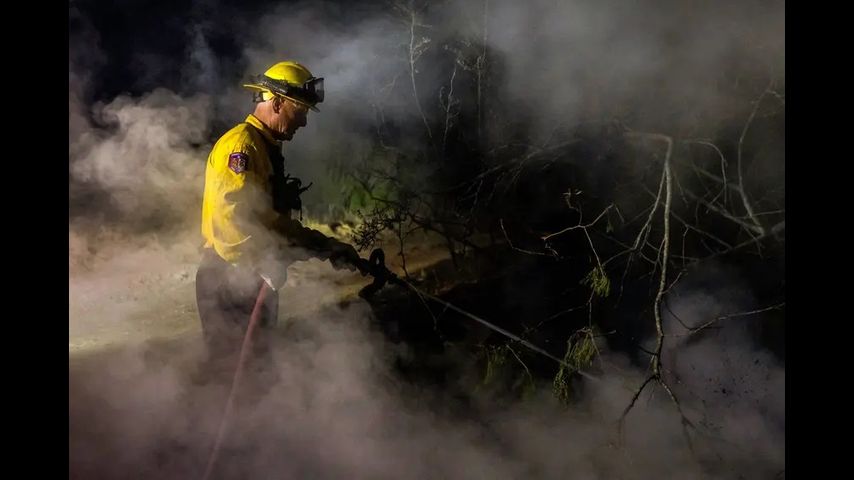Texas will share equipment database with local fire departments to help beat wildfires
"Texas will share equipment database with local fire departments to help beat wildfires" was first published by The Texas Tribune, a nonprofit, nonpartisan media organization that informs Texans — and engages with them — about public policy, politics, government and statewide issues.
Subscribe to The Y’all — a weekly dispatch about the people, places and policies defining Texas, produced by Texas Tribune journalists living in communities across the state.
LUBBOCK — A bill that establishes a statewide inventory of firefighting equipment won final approval Wednesday. The bill, a response to the historic wildfires that engulfed the Texas Panhandle last year, now heads to Gov. Greg Abbott’s desk.
Senate Bill 767, filed by state Sen. Kevin Sparks, R-Midland, creates a database of statewide firefighting equipment that is available during a wildfire. The inventory will include descriptions of the equipment, allow for searches by location and equipment types, and have contact information for fire departments.
The database will be operated by Texas A&M Forest Service, a state agency that manages Texas’ forests and natural resources. Sparks previously told a Senate committee that the agency already tracks emergency response equipment at fire stations. The bill makes that information widely accessible to fire departments statewide, including volunteer fire departments, which often operate on shoestring budgets and old equipment in rural areas. The agency would also be required to update the database annually.
“This would allow fire departments to share and locate equipment more effectively during emergencies, improve coordination and planning,” Sparks previously told a Senate committee on the bill.
The bill received unanimous approval in both the Texas House and Senate. The bill also had the support of firefighters and people in emergency services, who testified to lawmakers that fire departments need this service.
Texas lawmakers filed a bevy of bills to address the devastating wildfires that killed three people last year and burned millions of acres in the rural Panhandle. Sparks, along with state Rep. Ken King, R-Canadian, and freshman state Rep. Caroline Fairly, R-Amarillo, all filed legislation suggested in a report by a House committee that investigated the fire. The bills include proposals such as creating a statewide network that would connect all first responders and state agencies, boosting funds to rural volunteer fire departments, and putting oversight on unregulated power lines.
[A year after Texas’ largest wildfire, Panhandle residents tugged between hope and anxiety]
Two priority pieces of legislation — House Bill 13, which creates the Interoperability Council, and Senate Bill 34, a comprehensive bill on wildfire preparation and response — were approved by their originating chambers and are now in committee discussions.
The House investigative committee concluded that unmaintained electrical lines for oilfield equipment started at least two of the blazes. The Smokehouse Creek Fire, which grew to be the largest fire in Texas history, was ignited after a decayed power pole snapped and landed in dry grass, the committee found.
The committee also concluded that there are voluntary aid agreements between fire departments near each other, but volunteer fire departments can’t easily find and request the equipment they may need. During the wildfires, there was an uncoordinated response between responding agencies and uncertainty about what equipment was available and needed to stop the blaze from spreading.
Tickets are on sale now for the 15th annual Texas Tribune Festival, Texas’ breakout ideas and politics event happening Nov. 13–15 in downtown Austin. Get tickets before May 1 and save big! TribFest 2025 is presented by JPMorganChase.
This article originally appeared in The Texas Tribune at https://www.texastribune.org/2025/05/01/texas-fire-equipments-legislation/.
The Texas Tribune is a member-supported, nonpartisan newsroom informing and engaging Texans on state politics and policy. Learn more at texastribune.org.





